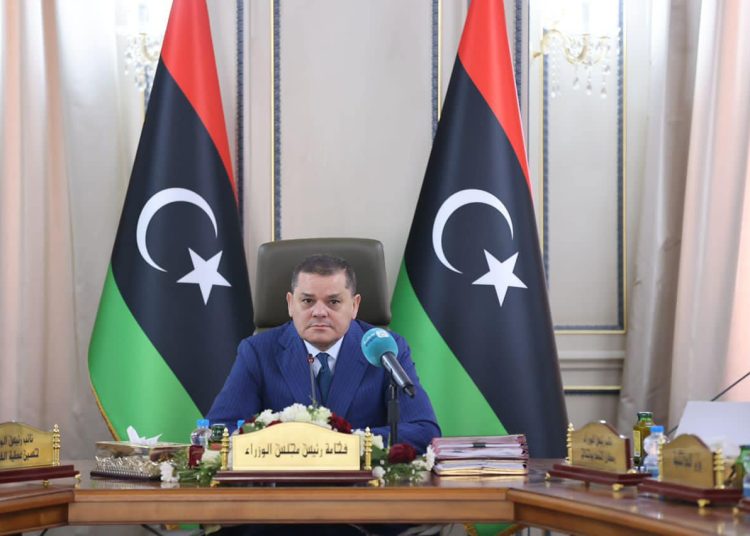In his pre-recorded televised speech this evening, the incumbent caretaker Libyan prime minister, Abd Alhamid Aldabaiba, called on all the main Libyan protagonists to leave the scene, but through elections.
Aldabaiba was aiming his call to the Speaker of the House of Representatives (HoR), Ageela Saleh, the rest of the HoR, the High State Council and Khalifa Hafter. Aldabaiba accuses them of pretending to want elections but in reality, doing everything possible to avoid elections.
Elections would produce a western Libya dominated parliament?
These are the status quo forces who fear change and fear elections. They are almost certain that elections would end their existence. It is unlikely that western Libya will agree to a new parliament being seated in eastern Libya. a parliament seated in the east would be subject to political intimidation and coercion by eastern powers. It would very likely re-elect an easterner as its speaker and would provide political legitimacy for Khalifa Hafter.
New elections and a parliament in seated in western Libya would more likely than not appoint a non-eastern speaker and would not provide political legitimacy for Khalifa Hafter. Hence new elections would, most likely, end Ageela Saleh and to a lesser extent, Khalifa Hafter’s political career. Although Hafter’s command of the eastern-based military forces give him a second avenue to power – having coercive power on the ground. Saleh’s powers emanates from his election to parliament and as its Speaker.
Elections would spell the end of the HSC?
Similarly, elections would bring an end to the unelected rump of the General National Congress (GNC), the High State Council (HSC). The HSC were created by the Skhirat Libyan Political Agreement in very extraordinary circumstances when Libya looked as if it were going to split into two countries. Libya’s politics have moved on since then and the HSC has become an anachronism with no justification for its continued existence.
But does Aldabaiba really want elections?
Whilst Aldabaiba may be taunting his adversaries, accusing them of conspiring to avoid elections at any cost, it must be pointed out that his accusation must be taken with a pinch of salt. Aldabaiba realises very much that as long as the status quo forces of the HoR and HSC succeed in delaying elections, he could remain in power for a lengthy period of time. Hence it is in Aldabaiba’s political interest that the HoR and HSC fail to agree on a constitutional basis for elections.
All Libya’s political elites do not want elections?
To this list of status quo forces we can add all the state-sector bureaucrats and the militias who are benefiting from the status quo.
We can therefore conclude, that in oil rich rentier state Libya, all the status quo forces fear change and fear ending up as net losers of any political change and are conspiring against the Libyan public to avoid elections.










